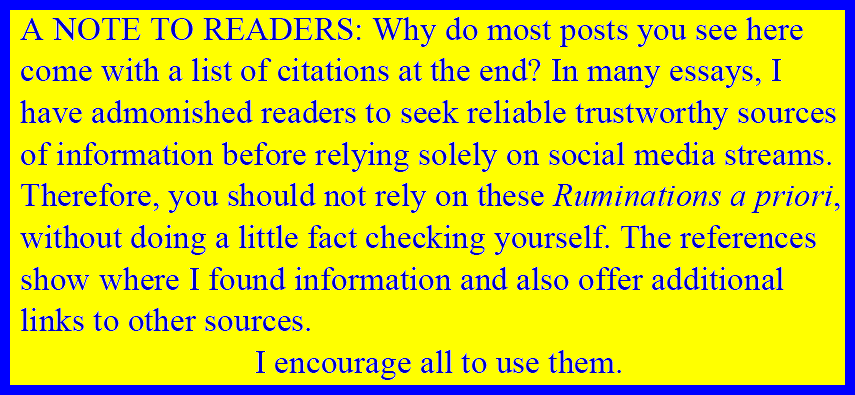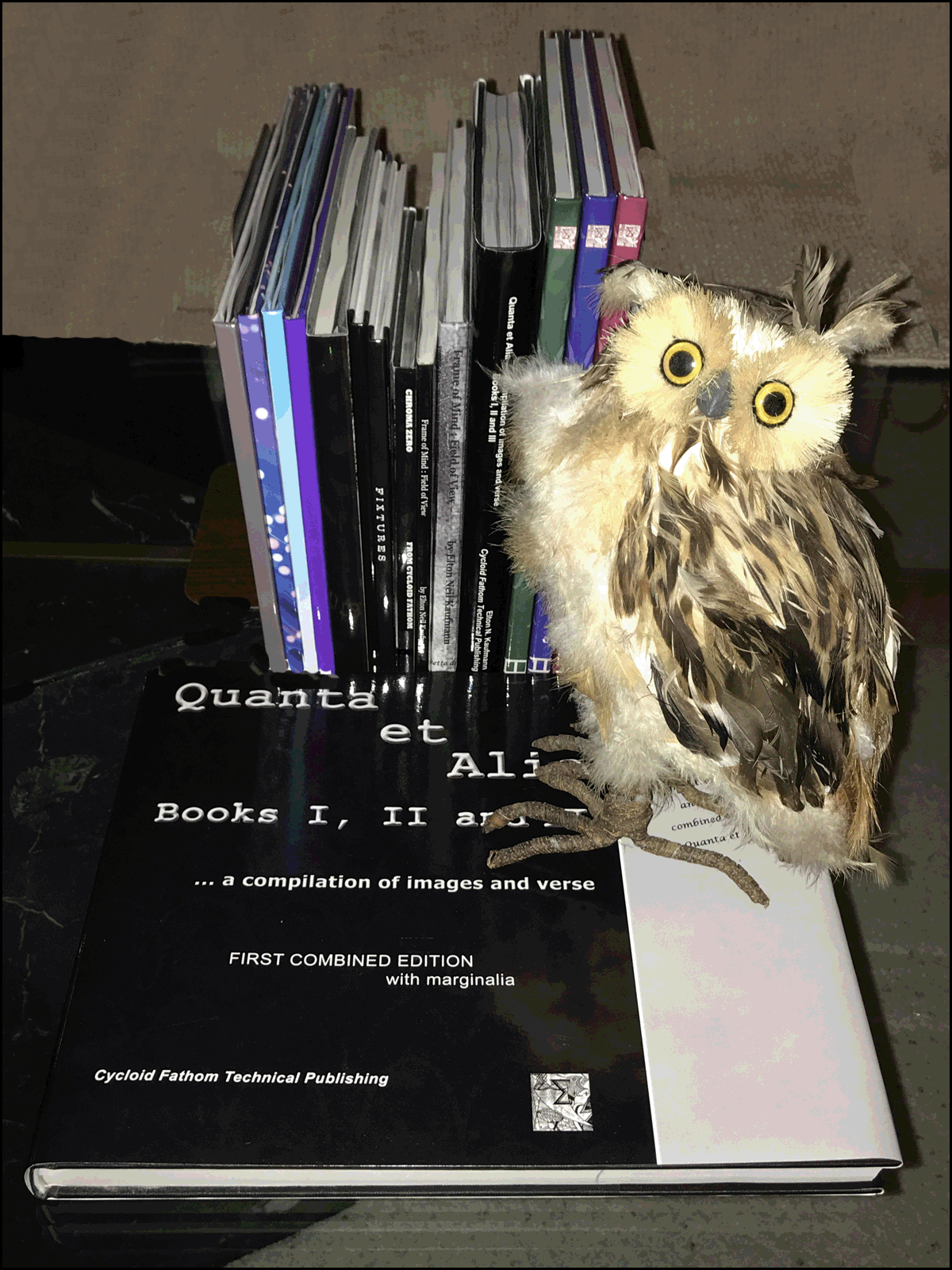Leftovers
Not infrequently, a notion passes through the consciousness and leaves a little seed behind, incomplete, and germinating unseen. From to time, it makes itself known unexpectedly and then recedes back into the subconscious. Origins are unclear. Could have been a fragment of a personal memory or a few words from a news broadcast. Could have been overhearing an exchange at the deli counter between a customer and the butcher. Or, it could have arisen from the cumulative effect of tidbits of body-language observations, conversations, and a whole string of people encounters throughout the week. A cogent exposition of a well-formulated idea might eventually grow from that seed, but there are no guarantees.
Realizing that these ideas in waiting want to break out into the conscious world, it is worth the effort to feed and cultivate them until a paragraph or two might be laid upon the page. Then, they may succeed in communicating a worthwhile point or principle or else be consigned to the basket of inchoate notions that will never see the light of day.
Fear
Whenever a person’s feelings or the rationale for a whole movement is described as “anger,” I first think of fear as what must be the underlying cause. Of course, this is the standard explanation for anger as a secondary emotion to primary fear.[1] The theories of psychology aside, in my experience, that connection makes perfect sense. There are many potential and real reasons for fear. In an interpersonal relationship, fear of loss can be evidenced as anger with a partner or vaguely at the whole world. In a combat situation, whether on a foreign battlefield or trading insults at the local bar, fear accompanies and instigates the fight or flight instinctive response at the same time anger toward the enemy ensues.
It is common to hear, “anger is not a productive emotion.” It can be self-defeating, but when it is third-party anger about the consequences, experienced or impending, of an unfair unfeeling policy that affects a whole community, it can spur a movement to redress the problem. To label this anger as originating from fear is fair, but it is an altruistic fear on behalf of others rather than oneself.
When fate intervenes and injuries from a serious accident or another major heath challenge arises, fear of the outcome for believers may be expressed as anger at God. I suppose when faith dictates that a supreme being affects our paths and that good behavior and prayers protect us from evil and bad luck, being forsaken in that way could translate the fear into anger.
This easy anger-fear correlation does not always apply. Potential injury generates fear as with fear of heights while standing at the edge of a precipice, bungee jumping off a bridge, or skydiving. There is no object for one’s anger in these cases, except perhaps after the fact at oneself.
Fantasy
Fantasy and imagination are close allies. It is a personal what-if excursion into the improbable, the unreachable. Perhaps worthwhile pipe dreams include a round-the-world trip, life in a seaside mansion, winning the lottery, or partying with a cadre of companions who idolize us and hang on our every word. Reality, of course, always intrudes and we are back at work, back at our daily chores, while masking an inward smile, the last remnant of the adventure.
For those whose lives are fraught with difficulties that continue unalleviated, a break for a relaxing fantasy may be good medicine. But as with most pleasures, moderation is the watch word. When serious overindulgence occurs, it is called maladaptive daydreaming, a habit that can lead to quite self-destructive results.[2]
Mass dilutions or hypnosis is a phenomenon that produces group fantasies. The threat of an alien invasion from outer space, if believable enough, can do that. On Halloween night, October 30, 1938, Orson Welles's radio broadcast adaptation of H.G. Wells's War of the Worlds caused widespread panic among listeners who mistook the simulated news bulletins for a real Martian invasion.[3] That was a fantasy coupled to fear. Techniques employed in less-than-scrupulous political campaigns rely on the public’s imagination and gullibility to both instill fear of a fantasy world that looks bad while promising an equally unlikely fantasy world that looks very good. The specific elements of the stories depend on the era and the principal concerns of the voters, but belief in the fantasy drives people to the polls. In this case, a more pejorative synonym for fantasy is lie.
Fortune
The alliterative cliché is “fame and fortune.” Fame belongs in the fantasy paragraph above. The dual meanings of fortune, however, need examination. It can mean an amassed amount of money. One man’s fortune may be another’s modest nest egg. Fortune also means fate or luck. Seneca the Younger, a Roman philosopher famously said, "Luck is what happens when opportunity meets preparation."[4] That allays the fear that our fortunes are at the mercy of random forces well beyond our control — the fear that we are to be blown hither and thither by the winds of fate. Both control through planning and execution and being subject to the vagaries of chance can be true at the same time. "The best-laid schemes o' mice an' men / Gang aft agley" according to the poet Robert Burns in his poem To a Mouse.[5] Burns understood that the mouse only experiences the present but we humans, being aware of our past, can fear the unknown of the future.*
When we think of today’s politics, we see fantasy crashing into fortune. I fear that to some, their fantasy in this space is coming close to maladaptive. But, I choose to favor Seneca the Younger over Burns and trust that we and any still-untrod- upon mice come out the far side of our troubles unscathed.
Failure
Although Gene Kranz never actually said it in Mission Control, “Failure Is Not an Option” has become the mantra for any manager of a critical project.[6] The US Space Program may be a bad example for thinking about this topic because the possibility of failure comes to those of us in lower-pressure jobs under far less heady circumstances than launching rockets with people on board. “Pick yourself up, brush yourself off, and start all over again”[7] and "The sun will come out tomorrow"[8] both assume that things have gone wrong, and we need some encouragement to “try try again.”[9] Easier said than done when the choices are few. Choice 1: figure out what did not work and fix it. Then repeat. Choice 2: tackle a different challenge to see if that one is better suited to your talents. (Choice 3 would have been to just give up, but overcoming fears to pursue a fantasy and have good fortune is not something I want to discourage.)
One first must see those choices as realistic alternative paths forward. Common sense and conventional wisdom tell us that failure is a teacher for those willing to learn from it. When ego leads to denial and to bloviating about fictional successes that are not recognized as such, the consequences of failure worsen. Only contrite retreat and course correction save the day and mitigate the damage done to any victims of bad judgment and pridefulness.
“Victory has a hundred fathers, but defeat is an orphan.”[10] Many large efforts involve many people with divisions of labor and varying degrees of responsibility. If the end result is partial or complete failure, finger pointing is not helpful and discourages participation in the next project with the same crew. When the leader and principal architect takes responsibility, the chance that lessons are learned is improved as is the likelihood of success the next time. Remediating quickly is a must because “Bad news doesn’t get better with age.”[11]
Foolishness
This one is not in the title of the post. But a seed on this topic has grown in me like a pebble in my shoe. Arrogance and hubris need to be put down by an adage like “Fools rush in where angels fear to tread.”[12] But then, a common trait of the fool is the inability to benefit from such warnings.
Playing the fool for entertainment is a talent. When foolish equates to silly, it’s harmless. When hazards are ignored and risks are serious, most of us keep our distance if we have no agency with which to redirect. But the gullible will fall under the spell of a charismatic fool and follow him/her to the edge of rationality. Perhaps the most effective blunting of dangerous behavior is to equate the fool with the court jester, fun to watch but never to be taken seriously.
WTF
Or to spell it out, “Where’re the F’s?” We had several more F’s each of which could be a paragraph worth examination, but they have yet to be fully developed. Here’s a hint. My remaining F’s include faith, fraud, fiasco, feckless, flimsy, faux, focus, frivolous, frustration, feeble, foiled (again), (go) figure, fragrant, formidable, fallacious, fête, and forest (for the trees). Stay tuned…
* This author’s uncultured interpretation from the text of the poem.
Credits: Cartoon “Brain” modified from OpenAI.com’s DALL-E image generator.
Cartoons “Fear,” “Pot of Gold,” “OOPS!” and “Fool/Jester” from Adobe Stock #s 71910526, 1415236048, 528251249, and 1024150035, resp.
[1] https://www.pinerest.org/newsroom/articles/deciphering-anger-blog.
[2] https://greatergood.berkeley.edu/article/item/does_daydreaming_have_a_dark_side.
[3] https://www.history.com/this-day-in-history/october-30/welles-scares-nation.
[4] https://www.employers.org/news/2021/02/25/newsletter/are-you-lucky-or-prepared.
[5] https://www.poetryfoundation.org/poems/43816/to-a-mouse-56d222ab36e33.
[6] Gene Kranz, Failure Is Not an Option: Mission Control From Mercury to Apollo 13 and Beyond (Simon & Schuster, 2009).
[7] Pick Yourself Up - Swing Time (1936). https://en.wikipedia.org/wiki/Pick_Yourself_Up.
[8] From Tomorrow, a show tune from the musical Annie. https://en.wikipedia.org/wiki/Tomorrow_(Annie).
[9] From “If at first you don't succeed, try, try again” https://pmc.ncbi.nlm.nih.gov/articles/PMC1767250.
[10] https://dailystoic.com/success-many-friends-failure-orphan.
[11] Title of the third chapter in “Conquering Crisis: Ten Lessons to Learn Before You Need Them,” Admiral William H. McRaven (Grand Central Publishing, New York, 2025)
[12] https://en.wiktionary.org/wiki/fools_rush_in_where_angels_fear_to_tread.
Nota Bene: Others may ruminate differently. But be warned: In my case, seeing or hearing something quite trivial -- a saying, a store clerk’s mannerisms, or bad grammar on a food product’s label – triggers a stream-of-consciousness extrapolation toward grander notions and generalizations. That is what often happens in these posts. ADDENDUM: Those subscribers who have been here for a while will have noticed that at times Ruminations has veered into diatribes. I make no apology. I just want my readers to know that it’s quite intentional. When events come close to making the ‘blood boil,’ that discontent bubbles up here.
Disclaimer: Any and all opinions expressed here are my own at the time of writing with no expectation that they will hold beyond my next review of this article. Opinions are like a river, winding hither and yon, encountering obstacles and rapids, and suffering turbulent mixing of silts from its depths and detritus from its banks. But just as a river has its clear headwaters and a fertile delta, so do opinions, notwithstanding any intervening missteps and uncertainties.
Reminder: You can visit the Cycloid Fathom Technical Publishing website at cycloid-fathom.com and the gallery at cycloid-fathom.com/gallery.
Forthcoming posts (unless life intervenes)
Reflections and Reminiscences
…prosaic prose versus pathetic poesy
2 June 2025
How well the well (is doing)
…Learn less, know less
9 June 2025
Up and Comers
…A New Hope or The Last Hope
16 June 2025











